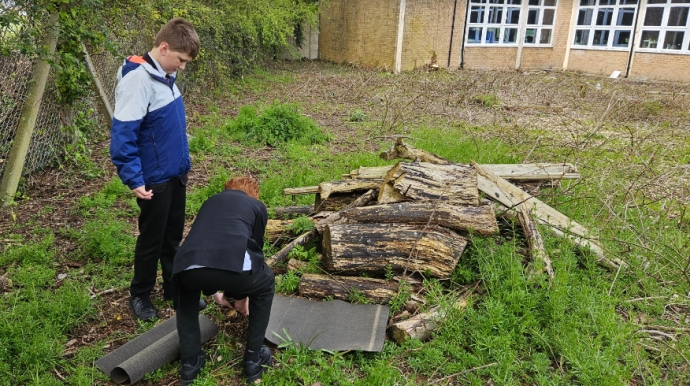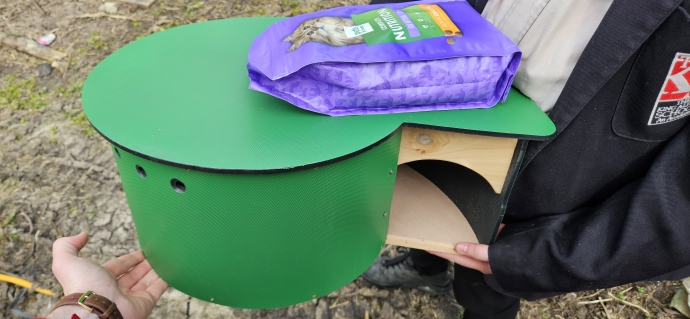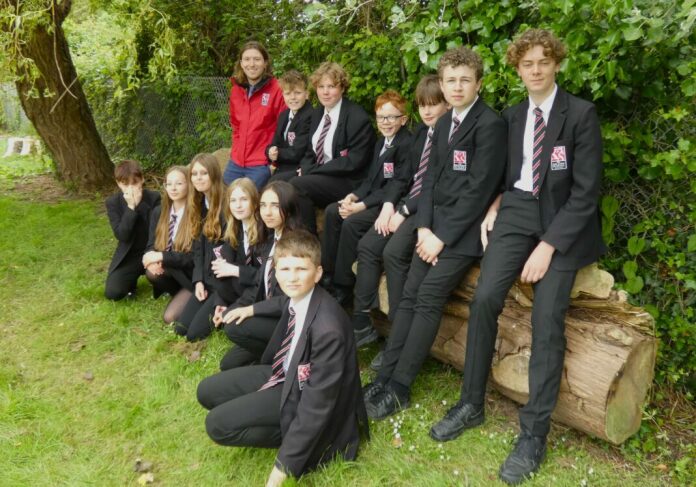Burnham-On-Sea and Highbridge students at King Alfred School Academy have been helping to improve the school grounds by taking in a new rewilding club that has been launched this month.
Rewilding is the restoration of nature until it can take care of itself. It includes restoring nature’s habitats, natural processes and, where appropriate, missing species.
The new club has been started by a science teacher at the school, Shae Clements, and it meets on a weekly basis after school.
Students are being encouraged by the club to get closer to nature by helping with various projects in the school grounds.
 Shae told Burnham-On-Sea.com: “The Rewilding Club is our attempt at connecting students to local wildlife and making the campus more hospitable for flora and fauna.”
Shae told Burnham-On-Sea.com: “The Rewilding Club is our attempt at connecting students to local wildlife and making the campus more hospitable for flora and fauna.”
“So far we have established reptile mats, hedgehog houses, no-mow zones, and set up a wildlife camera to monitor the species on site.”
“In the future we are looking to create a wildflower boundary to the field and creating a large pond to coax amphibians on site.”
“By doing this work, we offer animals a chance to move through the urban areas surrounding us, connecting natural areas and acting as a wildlife corridor. We will be recording surveys of the grounds annually to track these changes over time!”

He added: “The UK is one of the most nature-depleted nations in the world. The data shows that since 1970 UK species have declined by about 19% on average, and nearly 1 in 6 species (16.1%) are now threatened with extinction. If we remain disconnected from nature, we are unlikely to do anything to halt this worrying decline.”
The Rewilding Club is part of an initiative inspired by the Green Schools Revolution (GSR), a three-year project by Students Organising for Sustainability UK (SOS-UK).
It was launched in January 2023 and funded by the #iwill Fund and key partners. The Green Schools Revolution project aims to empower secondary school pupils to lead in implementing the Department for Educations Climate Change and Sustainability Strategy.
One key element, Wilding Schools, helps schools restore nature by developing plans to wild 30% of their grounds by 2030.
This initiative supports the UK’s goal to protect 30% of land and sea for nature by 2030 and involves participation in the National Education Nature Park. The #iwill Fund is made possible thanks to a £66 million joint investment from The National Lottery Community Fund and the Department for Culture, Media and Sport (DCMS) to support young people to access high quality social action opportunities.
wo students involved with the Rewilding Club, Erin and Zack, explained more about the projects that they had been doing. They both enjoy being outdoors and finding out about nature.
Erin says: “I joined the club as some of my family are interested in rewilding projects. I like finding out about nature and wildlife and I am looking forward to seeing what animals come into the school. We hope to have a pond in the future. I have a pond in my garden and I like watching the frogs. We are going to Plymouth University in July to give a presentation about the club.”
Zack adds: “We have recently put out reptile sheets to see if we have any local slow worms or snakes. We have seen foxes and badgers as well as birds such as wagtails. Our next project is to plant some wildflowers along the edge of a playing field and in other areas of the school. We are also looking for suitable areas to put up some bird boxes and bug hotels made by students in our school.”
Organisers hope the club will expand the variety of the outside space within the school and make it a more enjoyable space to spend time outdoors whether it is lesson time or break and lunchtimes.







